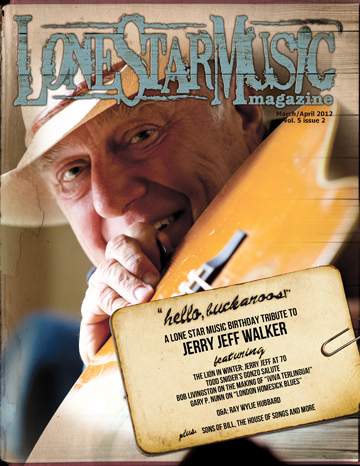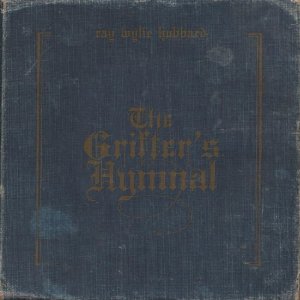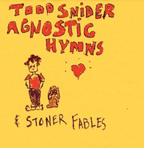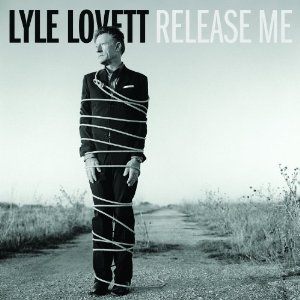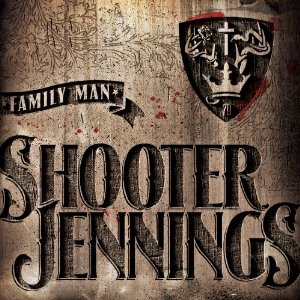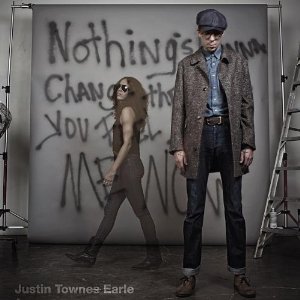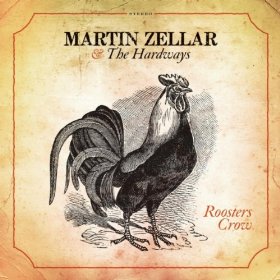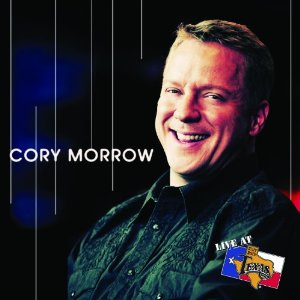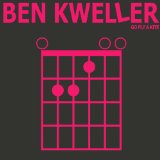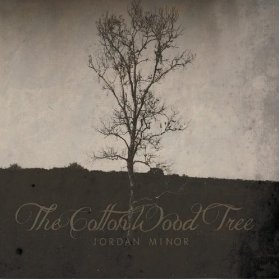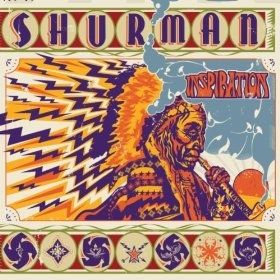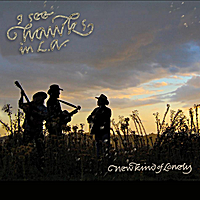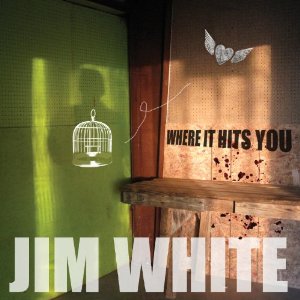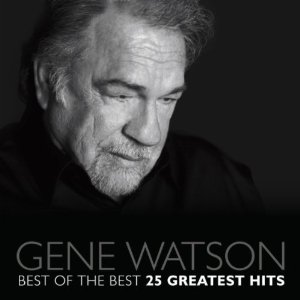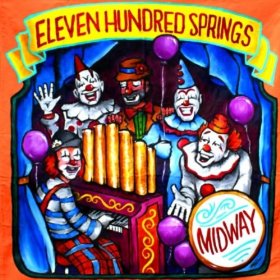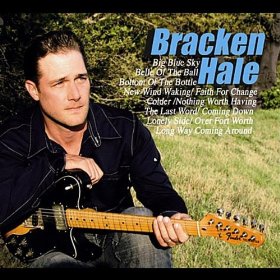

|
Jerry Jeff Walker |
|
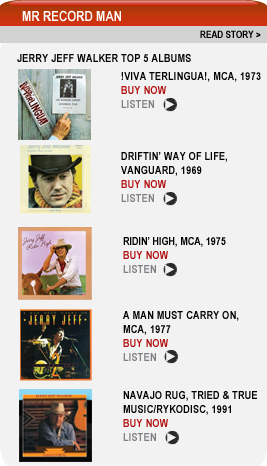

Like the faded songbook pictured on the cover of The Grifter’s Hymnal, Ray Wylie Hubbard’s music has a dog-eared duality. With plenty of wily word play for the thinking man and woman — and ample dancehall sing-a-long choruses for the drinking woman and man — Hubbard’s latest is, if not a career capstone, a mirthful reminder that brother Ray Wylie preaches that life is to be lived in and rocked out to. It’s to be deeply pondered and fully experienced — for better or worse — and played damned loud and in-your-face proud. If that means you’re pushing 64 and still in a honky-tonk, like some son of a redneck mother, so be it … as long as the music’s cool and the beer’s cold. And you’ve also read your Rilke and can quote Martin Luther King.
|
|
TODD SNIDER
|
Eight years ago, Todd Snider’s masterwork East Nashville Skyline backed woozy wisdom (“Age Like Wine”) and wit (“Tillamook County Jail”) with the ace storyteller’s most elegant vignette (“Play a Train Song”). Subsequent albums (2006’s The Devil You Know, 2009’s The Excitement Plan), an EP (2008’s Peace Queer) and an outtakes collection (2007’s Peace Love and Anarchy) have all delved deeply into the American psyche, but none quite matched his career peak. His new Agnostic Hymns & Stoner Fables comes closest. As always, Snider tempers morality lessons with sharp one-liners. “You think I’m not very bright/And you might be right,” he taunts on the workingman’s blues “In Between Jobs.” “I might’ve been born yesterday/But I was up all night.” Snider’s most musically diverse album yet forms a compelling roots patchwork with deep grooves (“Digger Dave’s Crazy Woman Blues”) against country rock (“Brenda”) and buoyant folk (Jimmy Buffet’s “West Nashville Grand Ballroom Gown”). Lyrics balance faith waned (“Too Soon to Tell”) and regained (“The Very Last Time”) and frequently meet in between. “In the beginning, man wondered to himself/Why, oh why are we here?” Snider sings on the gnarly dirge “In the Beginning.” “And yet with each asking of this question/The answer would become even less clear.” The former Texas resident undoubtedly will mine the debate for many more years. As for now, this installment rattles (“New York Banker”) and shakes (“Big Finish”) without stalling once. |
LYLE LOVETT
|
Though he says the split was cordial, Lyle Lovett couldn’t resist taking a parting shot upon leaving his label of 25 years, which is why he included the title tune, a duet with k.d. lang, on this mostly covers-filled volume. He also gives more props to favored Texas songwriters Eric Taylor (“Understand You”) and Townes Van Zandt (“White Freightliner Blues”). But his sometimes-quirky choices also include Chuck Berry’s “Brown Eyed Handsome Man,” rendered as a slow, bluesy ballad; a soulful version of the Michael Franks-penned/Sonny & Brownie-popularized “White Boy Lost in the Blues”; and a charming duet with protege Kat Edmonson on “Baby, It’s Cold Outside.” Watkins siblings Sara and Sean also show up. As usual, Lovett’s arrangements are exacting and impeccable (check out the Large Band rendition of Jesse Winchester’s “Isn’t That So”). Release Me as a whole isn’t quite as moving as 2009’s Natural Forces, but it’s got many elegant moments.
|
SHOOTER JENNINGS
|
It’s no secret that following a famous relative into the music business can be as much of a liability as an asset. To deflect the inevitable comparisons to their legendary kin, some next-generation troubadours go out of their way to establish a sound of their own; but Shooter Jennings, son of Waylon, has never shied away from his outlaw country heritage. For better or worse, he’s always embraced it full on, sometimes to the point of unintentional parody — hitting a lot closer to the Kid Rock mark than his old man’s.
|
JUSTIN TOWNES EARLE
|
Justin Townes Earle has kicked addictions before, but it seems the one he’ll never be able to overcome is the most dangerous of all: heartbreak. Though these 10 songs are dressed with excellent instrumentation, including gorgeous electro-glide guitar by Calexico’s Paul Niehaus, Bryn Davies’ fine upright bass and a suitably subtle horn section, even on upbeat tracks like the R&B/honky-tonker “Baby’s Got a Bad Idea,” they never obscure the ache that permeates Earle’s soul and manifests itself in his weary, weathered voice. It’ll take him only a few words to break your heart, too, with lines like “Hear my father on the radio … sometimes I wish that he’d just call” (“Am I That Lonely Tonight?”) and “Maybe I should trace my life to the night when my folks first met/maybe I could find the moment where my father broke my mother’s heart in half” (“Movin’ On”). Earle often uses his pen to expose his traumas, parental and otherwise. Somehow, he continually manages not only to outdo his previous efforts, but to explore and evolve musically as well. Kid’s already proven the equal of his namesakes. And he’s only getting better.
|
MARTIN ZELLAR & THE HARDWAYS
|
In a marginally more fair world, the Gear Daddies — pride of Austin, Minn., — would have made it at least as big as fellow Twin Cities alt-country forerunners the Jayhawks. On top of writing great, catchy songs, the Gear Daddies were most of all fun — unlike, say, those dour mopes in Uncle Tupelo. But the band bowed out after two very fine albums and one odds-and-sods collection (1988’s Let’s Go Scare Al, ’90’s Billy’s Live Bait, and ’92’s Can’t Have Nothing Nice), leaving frontman and principal songwriter Martin Zellar to carry on with a solo career. He’s recorded a handful of solid albums since then, most co-credited to his backing band the Hardways (a shifting lineup anchored by fellow former Gear Daddy Dominic Ciola on bass). It’s tempting to call Zellar’s latest, Roosters Crow, his best outing since the Gear Daddies’ glory days, but even a quick revisit of his previous solo albums proves that he never really lost his touch for marrying painfully bittersweet emotions to obscenely hummable hooks. Suffice it to say, though, Zellar (who now lives with his family in Mexico) remains in top form on Roosters Crow, which was recorded just outside of the other Austin at The Zone in Dripping Springs, Texas. The whole record is loaded with talented “locals,” with producer Pat Manske having rounded up such Texas heavies as Kevin McKinney, Lloyd Maines, Bukka Allen, Brian Standefer, Billy Bright, Michael Ramos, and Chojo Jacques to support the Hardways (paired down here to just Ciola and drummer Scott Wenum) and both Terri Hendrix and Kelly Willis to sing backup vocals on a pair of songs each. Zellar, in turn, brings 11 songs equal to the all-star occasion, the best of the bunch being the jangly loser’s lament “I’m That Problem,” the achingly wistful “Some Girls” and the cautiously optimistic closer, “It Works for Me.” Lyrically, Zellar’s grown a lot darker over the years, but then again he’s always sung the plight of the down and outs, even throughout the Gear Daddies’ peppiest sing-along choruses. Roosters Crow finds him a lot older and a fair deal more somber, but two decades on from Billy’s Live Bait and the unforgettable “Stupid Boy,” there’s still a buoyant kick to his voice and jangle to his melodies that always hits the spot. |
CORY MORROW
|
Cory Morrow’s Live at Billy Bob’s Texas CD/DVD combo may be as notable for what isn’t here as for what is. Absent are “Nashville Blues” and “Big City Stripper” (it’s on the acoustic version, sold separately, though), and the only frat-boy sing-along song found here is “21 Days.” Still, diehard Morrow fans — the kind who appreciate stuff beyond the obvious songs that most people identify Morrow with — will probably rejoice in hearing new live versions of all the songs that are here. And there’s no knocking the sound or the performance; the production is pristine, and Morrow’s excellent band almost outshines him on a few tracks. With more crowd noise, you could crank this one and feel part of the show itself. Have a listen, but don’t be surprised if you enjoy the DVD more than the CD. Then, pick up the acoustic album as well. And discuss.
|
BEN KWELLER
|
Ben Kweller is past 30 now, but he still looks like a kid — and sings like one who’s voice hasn’t changed. That sweet, high reach he has lets him pump out some terrific pop — both the pleasant and power kind. On Go Fly A Kite, he skips around from sunny melodies to fuzzed-out, T. Rex vs. Cheap Trick guitar rock to Poco-meets-Byrds-meets-Buffalo Springfield (and visiting Jayhawks) alt-country. In other words, it’s all awfully, appealingly retro-sounding. By the time “Time Will Save the Day” rolls around, one has the distinct impression Kweller grew up wishing he’d been born in an earlier rock era. “Mean to Me” harks right back to the ’80s, and the Cali-country-folk track “Full Circle” contains effortlessly sweet and fine, Laurel Canyon-worthy vocals. Kweller also evokes his old pal Ben Folds via the syncopated piano and vocals of “The Rainbow.” Which brings us to “Justify Me,” a tune that sounds like it’s gonna fall under the tires, dragged down by plodding, borrowed guitar riffs, as if he threw every rock cliché into a pot and stirred. Yet the chorus has a lasso effect. Just when you think you can write this one off, it ropes you in. It’s maddening, in a way, because you can’t love it or hate it. There’s no such wavering about the charms of “Full Circle,” “Miss You” or the closer, “You Can Count on Me.” So steal if you must, Ben. Just let us count on you to keep us humming along.
|
JORDAN MINOR
|
Somewhere between Ryan Adams and Jesse Dayton rests Jordan Minor’s new work, The Cottonwood Tree. The New Braunfels-based songwriter and multi-instrumentalist bookends the album with desperation anthems “The Ballad of William Bonney” and “Workin’ Man.” The first six tracks have that one arm out the window feel, but the never-ending “Rosalynn Brown” pats the brakes, and the music goes into park-and-snuggle mode; it seems the truck has pulled into the drive and the outlaw has settled down. Minor’s growl guides you along the title track, then purrs through bedroom disclosures on “When Tomorrow Comes” (coming soon to a wedding near you) and back-porch epiphanies in “Misery.” Heartache creeps at the corners of most tunes, but Minor brings a very guarding delivery that creates a personal listening experience. There’s a depth and maturity in this album rarely found so early in a musician‘s catalog. This is a disc for fans of music that crackles, long embraces, and midnight conversation. — CODY OXLEY |
SHURMAN
|
As admittedly lazy critical adjectives go, “Stonesy” is only slightly less overused than “Beatlesque.” But “Facey” just doesn’t look or sound right, and sometimes there’s just no avoiding the obvious: At it’s best, Shurman’s Inspiration is about the Stonesy-esque record to come along since 2011’s reissue of Some Girls. The Los Angeles-formed band, fronted by native Texan Aaron Beavers, has been kicking around for the better part of the last decade, but Inspiration is their first release since relocating to Austin. That explains the earnest country roots shown in “Back to Texas,” arguably the weakest track on the album; no matter how sincere the sentiment, that line about finding one’s “Yellow Rose … underneath the pecan tree with blue bonnets up to her knees” just sounds pandering. Outside of that, though, Inspiration kicks ass: sweet keepers “Hometown Judgment Day,” “Apartment #9 Blues,” “Novocaine Heart,” and “Leaving Song” all swing, swagger and groove with boozy abandon in and around Beavers’ soulful vocals, which sound more than a little like a Southern-fried Paul Rodgers. There may not be a whole lot of new ground broken here, but that ain’t no big thing; the guys in Shurman all wear their classic rock (and Flying Burrito Brothers-style cosmic country) influences proudly on their sleeves, and they wear ’em with impeccable flash and style. — RICHARD SKANSE |
I SEE HAWKS IN L.A.
|
I See Hawks in L.A. have been knocking out fans on the West Coast for 11 years with a sound you could call Country Noir. They’ve distilled their own heady brew out of a combination of California Cosmic Cowboy music, jam-band instrumental proficiency, old-fashion psychedelia and a real love of pre-Nashville honky-tonk country with a taste of bluegrass in their three-part harmonies. Lyrically, however, they’re a bit outside the box, as you might glean from a song title like “Big Old Hypodermic Needle.” Chris Hillman, Rick Shea and other heavies have sung their praises and sat in on their album sessions; but although they’ve toured all over the U.S., England and Europe, they’re still not as well known as they should be. Hopefully that will change with New Kind of Lonely, probably their best album so far, packed with tunes that sound like tomorrow’s country standards. The mostly acoustic outing, like their previous efforts, is full of sparkling musicianship, Rob Waller’s emotive vocals, and an odd melancholy that’s part country and part Raymond Chandler. “Big Old Hypodermic Needle” is a traditional tune about self-destruction, but the needles and Vicodin let you know this song didn’t come from Nashville. Likewise “Your Love is Going to Kill Me,” which opens with a reference to James Joyce’s Ulysses. The melody is pure country, but the feel has a hopelessness that brings to mind the work of Townes Van Zandt. The Hawks show off their bluegrass side on “Hunger Mountain Breakdown,” featuring fine banjo work from Cliff Wagner, Paul Lacques on Dobro and longtime associate Gabe Witcher contributing some excellent fiddling. Like other California cowpokes, the Hawks manage to stay true to country music’s roots, while nodding to their home state’s freaky reputation, exemplified by the lighthearted “I Fell in Love with the Grateful Dead.” Lacques plays Garcia-like lead lines that weave in and out of the mix, while Waller reminisces about joints smoked, chicks romanced, and organic curries eaten.
|
JIM WHITE
|
Released on David Byrne’s adventurous Luaka Bop label, Jim White’s extraordinary 1997 debut, The Mysterious Tale of How I Shouted Wrong-Eyed Jesus!, sounded like ghostly Appalachian gospel music from outer space. Where It Hits You, the Pensacola-born songwriter’s first release on Yep Roc, proves he’s still no closer to mainstream convention, and praise you-know-who for that. White’s peculiar strain of spookily atmospheric Americana may be an acquired taste, but it’s hardly impenetrable. Beauty abounds here in even the darkest moments, and there’s a fair amount of humor and whimsy, too, with four songs right in the middle of the album espousing a certain “cock-eyed state of grace” via playful instrumentation and fractured sing-along choruses. But it’s White’s lyrics that really hit you: from the building sense of urgency implicit in the opening prayer of “Chase the Dark Away,” to the vivid emotional snapshots of “The Way of Alone,” and the heartbreaking account of a wasted life in “My Brother’s Keeper.” White doesn’t sugarcoat the harsh realities of life: “On the best of days,” he muses in “Epilogue to a Marriage,” “still there’s hell to pay.” But he doesn’t flinch from them, either. As he dares in “Infinite Mind,” “Let us sleep in poison ivy, let us roll among the weeds/Let us wear our ragged hearts upon our tattered sleeves.” — RICHARD SKANSE |
GENE WATSON
|
Texas country music legend Gene Watson always wanted to be a musician, but thought it would be a sideline until “Love in the Hot Afternoon,” an indie single he cut while still working at a Houston body shop in 1975, got picked up by Capitol. It led to a string of 20 Top 10 hits and dozens of best-selling albums. His classic country style got him noticed, but it was emotion-drenched ballads like “Paper Rosie” and “Farewell Party” that made him a star. Four different conglomerates own Watson’s back catalogue, so in an effort to reclaim his legacy, he cut 25 of his best for his own Fourteen Carat label. Watson’s clear, forceful tenor is still youthful and full of country soul. The songs were all played in the original key, and he still hits all the notes on these masterful recreations that are sure to please longtime fans. The record will provide an education for new fans, too, exposing them to the sharp songwriting and witty wordplay that helped lay the foundation for today’s country music industry. |
ELEVEN HUNDRED SPRINGS
|
With the release of Midway, their ninth record in 14 years, Eleven Hundred Springs has once again made an album full of two-steppin’, skirt twirlin’, honky-tonkin’, real country music — real because Matt Hillyer has that much-sought-after gift of writing songs about real people with real problems, real love, and real lives. He sings “Someplace Else to Be” from the perspective of a couple going through hard times after 15 years of marriage, and “Afghanistan” from that of a young soldier combatting fear and loneliness. Two of the best songs on the album are classic country at its best. Fans will hear a strong Merle Haggard influence in “Hard Working Just Ain’t Hard Working Anymore” and the simply produced, slow waltz, “It Was Only,” a beautiful, “you saved me from myself” love song. But what makes Eleven Hundred Springs so much more than another Saturday night Haggard and Jones tribute band is the energy from Hillyer, fiddle player Jordan Hendrix and Steve Berg on upright bass. They have consistently delivered songs you can’t help but get up and dance to, and Midway continues the tradition with such fast-paced, swinging staples of their sound as “I’m an S.O.B. (When I’m S.O.B.E.R)” and “There Ain’t Enough Hours in the Day.” Fans of the band will not be disappointed, and those new to Eleven Hundred Springs will definitely be looking for a live show nearby to hear these songs where they were meant to be heard — on a hardwood dance floor. — JODI TIDWELL |
BRACKEN HALE
|
Austin, Texas, has never exactly been short on country acts of the retro persuasion — but it could stand a few more on the level of Oklahoma transplant Bracken Hale. Hale’s not new to the scene; he’s been gigging hard since the ’90s, albeit mostly as a bassist for the likes of Gary P. Nunn, Chris Wall and Chapparal. But on his self-titled debut, Hale jumps out of the crowd like a ’60s silver screen idol in a sea of extras. With 13 tracks clocking in at just over 50 minutes, the record feels a little like a tad too much of a good thing, but there’s absolutely no filler here. Every song (all of ’em originals) showcases Hale’s suave country croon and deft ease at turning a matter-of-fact phrase or sentiment into something both dignified and poetic. Glen Campbell in his prime could have mined a fistful of hits out of material this uniformly strong — especially golden nuggets like “Over Fort Worth” and “Lonely Side” — but he would have been hard pressed to beat the originals. Hale plays most of the tasteful but satisfyingly twangy electric guitar and all of the bass, but producer Eric Hisaw proves a kindred spirit every note of the way, coloring the tracks with inspired touches like Ron Flynt’s B3 organ, a hint of trumpet (Mike Vasquez) and heaps of pedal steel (by Danny Hawk and Burton Lee). The end result is an album that plays like a cool blast from the past, like a crystal-clear channel back to the heyday of Jimmy Webb and pre-Outlaw Waylon Jennings. But although it clearly harkens back to another era, it’s too good of a record, and Hale too strong of a writer and singer, to call “retro.” Just think of it as a misplaced classic.
|
K PHILLIPS
|
Singer-songwriter K Phillips is based in Austin and plays the kind of music that makes the Austin scene so hard to categorize. The basic building block is Americana, but the arrangements and songwriting lean heavily on blues, Southern funk, and R&B. He plays banjo on some tracks and a mean slide guitar, but his primary tool is the Hammond B-3, which adds a tough, murky feel to these gritty, slightly degenerate tales of love and lust. “To Dance with You” is a cheerfully gloomy rocker that sounds like a drunken grad student trying to score at closing time on a Saturday night; “Get It” has a sinister R&B groove and oozes with illicit sexuality; and “Does It Hold Water” channels the churning soul of an early Stax hit. The keyboard work and sly guitar accents give each tune an individual sheen, but his understated vocals are just as impressive. His casual, insouciant singing has a subtle edge that gives his literary lyrics an appealing gleam. — J. POET |
